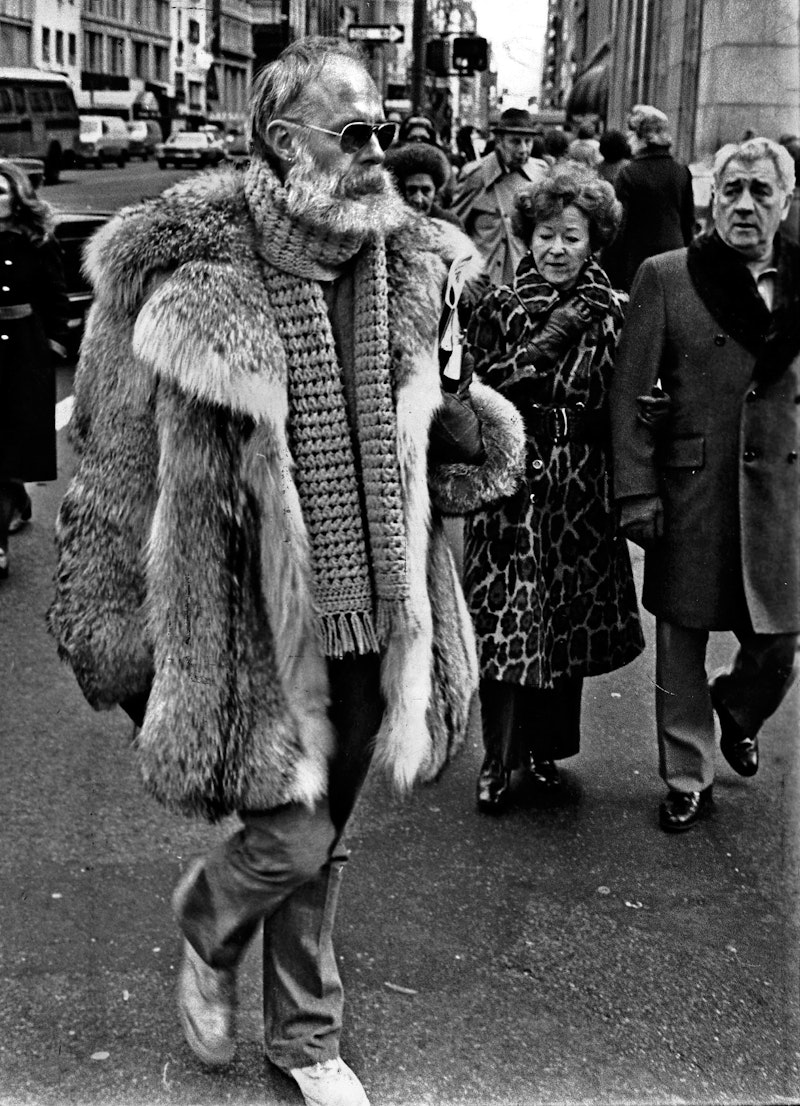I think somebody slipped up. The biographer of Edward Gorey, the great and strange American artist, wanted to know if Gorey was autistic. The biographer emailed his question to “the developmental psychologist Uta Frith, a pioneering researcher of autism (specifically Asperger’s syndrome).” She responded with, in her words, “a resounding no.” The great illustrator and book creator, solitary as he was and unique as his gifts were, couldn’t have been on the spectrum, the professor declared: “1. Gorey’s hallmark irony is incompatible with autism. 2. A keen eye for subtle cues is incompatible with autism.” Thus, the biography (Born to be Posthumous: The Eccentric Life and Mysterious Genius of Edward Gorey by Mark Dery, recommended) gives a flat “he wasn’t” to the possibility.
I don’t say Gorey was autistic, because who knows. But Dr. Frith’s quote strikes me as inadequate. I’m autistic and irony’s fine by me; if anything I overindulge, as some irritated ex-workmates used to tell me. I can also pick up subtle cues if I’m allowed to sit quiet and watch what’s going on. I have in mind office behavior and the way people show their personalities, but the same for watching a movie, reading a book, and so on. Art’s made up of cues, some of them pretty fine-grained, and if you miss them there’s nothing to enjoy. Possibly Dr. Frith has something very particular in mind when she says cue. But even if you go with strictly social cues, I can catch those.
I started doing it late, in my 20s. I had to learn what to watch for, and I still get taken by surprise now and then. I’m a hermit, and lack of road experience makes a difference. But the big hurdle isn’t noticing, it’s computing. Really, it’s taking the behavior seriously. “This girl who just sat down expects me to agree with whatever she says because she’s looking for a boyfriend.” It’s a goofier yet more dismal world when you accept that possibility.
Some autistics may lack irony or a sense for social behavior. Maybe they were born without the necessary brain structures, the way some children are born without the correct fingers and toes. But I think many of us have that equipment while lacking another sort: the brain structures that allow you to keep up when people are crowded around you and you have to respond. We’re always behind the curve, so we don’t get jokes, we don’t get the stiffened tone—not all at once, the way other people do. We have to be sitting to the side to do that, and then there’s one more obstacle to go. We’re never really in the mix, so we have no feel for the rules that lie behind the mix. We have to work them out, establish them situation by situation until some planking’s been completed; then we know where we stand.
Expressions I didn’t get as a boy: “He has a great face for radio.” “Hey, flood’s over.” “Look who’s talking.” I had to be walked through those. I also had trouble with the famous punchline “Quiet, everyone will want one” and the jocular “It sounds better in Yiddish.” (The last is said when a joke falls flat.) But TV and books offer plenty of jokes and I liked them just fine. Conversation was where I got tripped up, and I think that’s because talking with people always seemed a bit much. To be very impressionistic about it: the faces, the sounds, were all set free from any container and allowed to range through so many positions and distances and heights, and you were supposed to sort it all out and respond right there.
I’d play it safe. I’d inch along, listening to one word and then the next, holding on to plain meaning like a rope. It’s pretty obvious what the joke is in “Quiet, everyone will want one,” but maybe there was a catch, something I didn’t know about. Unsuspected angles kept cropping up in conversation and this was conversation, so I stuck to procedure. The same spirit caused me to call joints marijuana cigarettes, much to a schoolmate’s bemusement. I knew nothing about joints firsthand and instinct told me I shouldn’t claim the lingo of people who did. But a book I read (The Beatles by Hunter Davies) said marijuana cigarette, so that’s what I could use. “Joint” was for people who were conversant, so to speak, and I was conversant in nothing. But now I’ll say joint because that’s what people call that thing they’re smoking.
Also, I like jokes. I like irony. Somebody tell Dr. Frith, she might as well know.

